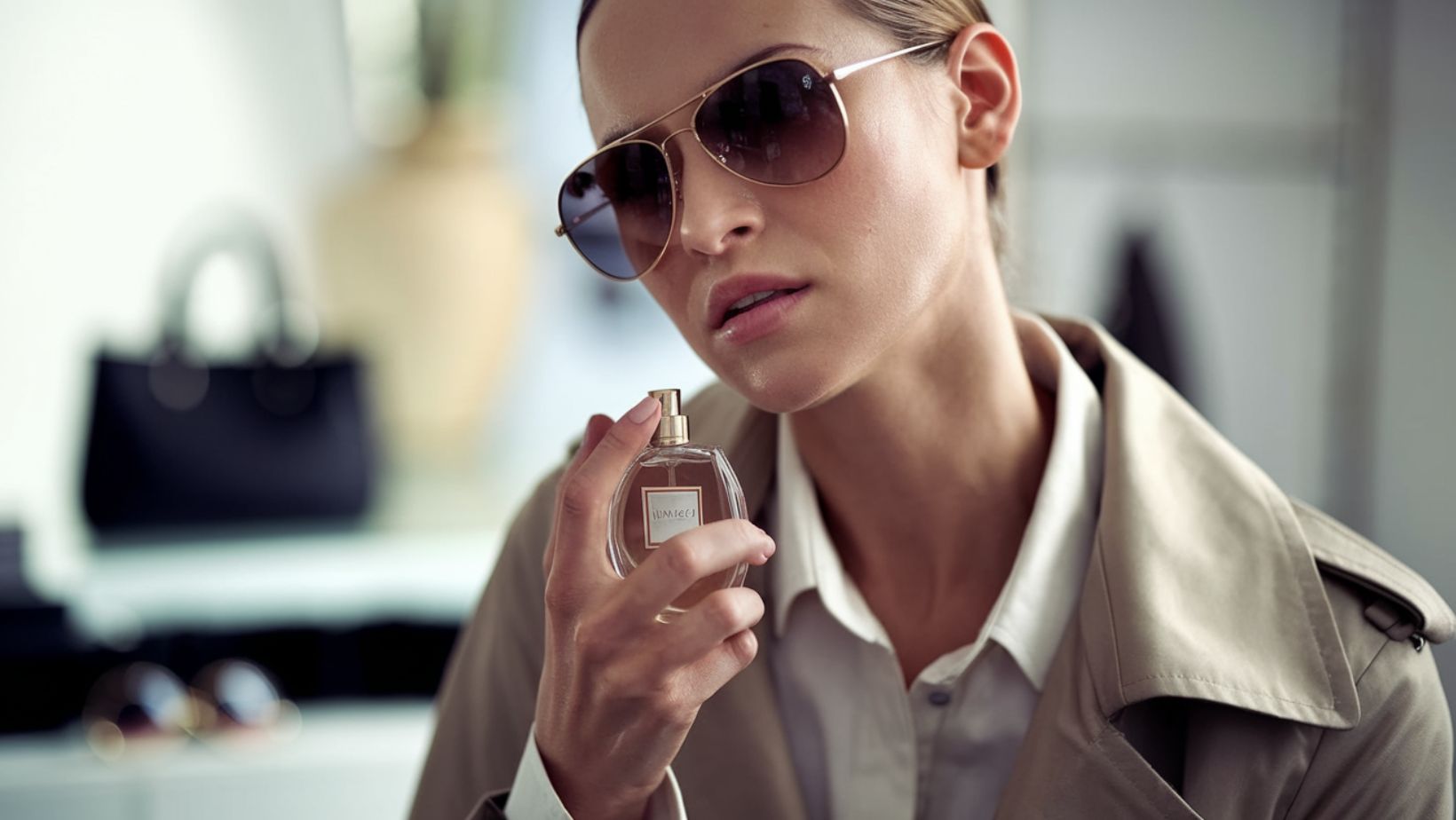Have you ever wondered if there’s a secret to attracting others? Could the answer lie in a simple spritz of perfume? The idea of pheromone perfumes has captured the imagination of many, promising to unlock the mysteries of attraction and desire.
But do these scents really work, or are they just another marketing ploy? As we delve into the world of pheromone perfumes, we’ll explore the science behind these intriguing fragrances and uncover the truth about their effectiveness.
Can a single drop of perfume truly ignite passion and draw others to you like moths to a flame? Let’s embark on a journey to separate fact from fiction and discover the real power of pheromone perfumes.
Prepare to be captivated as we unravel the secrets of attraction and explore the potential of these alluring scents.
The short answer is that the effectiveness of pheromone perfumes remains scientifically inconclusive
Despite the bold claims made by manufacturers of pheromone perfumes, the scientific evidence supporting their efficacy is limited and often contradictory. While some studies suggest that certain synthetic pheromones may have an effect on human behavior and attraction, the results are far from conclusive. Dr. Charles J. Wysocki, a behavioral neuroscientist at the Monell Chemical Senses Center in Philadelphia, states, “There’s no scientific proof that human pheromones even exist, much less that they are found in perfumes.” The lack of definitive evidence leaves room for skepticism about the true power of these fragrances.
Pheromones are chemical substances naturally produced and released by animals, including humans
Pheromones are chemical compounds that are secreted by an individual and can trigger specific behavioral or physiological responses in another member of the same species. In the animal kingdom, pheromones play a crucial role in communication, mating, and social behavior.
For example, female moths release pheromones to attract male moths for reproduction, while ants use pheromone trails to navigate and coordinate their colonies. The existence of human pheromones, however, remains a topic of ongoing research and debate among scientists.
Some studies suggest that certain human body odors may contain pheromone-like compounds
Research has shown that human body odors can convey various types of information, such as genetic compatibility, emotional state, and fertility status. A study conducted by Dr. Claus Wedekind at the University of Bern in Switzerland found that women preferred the scent of men whose immune systems were genetically different from their own, suggesting that body odor may play a role in mate selection.
Another study by Dr. Martha McClintock at the University of Chicago demonstrated that exposure to female underarm secretions could alter the menstrual cycles of other women, indicating the presence of pheromone-like substances. However, the specific compounds responsible for these effects have not been conclusively identified.
Pheromone perfumes often contain synthetic versions of androstenone androstenol and estratetraenol
Many pheromone perfumes on the market claim to contain synthetic versions of putative human pheromones, such as androstenone, androstenol, and estratetraenol. Androstenone and androstenol are steroid molecules derived from testosterone, while estratetraenol is related to estrogen. These compounds are believed to be present in human sweat and urine, and some studies have suggested that they may influence mood, attractiveness, and social behavior.
However, the effects of these substances when used in perfumes remain largely unproven, and their concentrations in commercial products are often undisclosed.
The claims made by pheromone perfume manufacturers are often exaggerated and not backed by rigorous scientific evidence
Pheromone perfume manufacturers often make bold promises about the effects of their products, such as increased sexual attraction, confidence, and social success. However, these claims are frequently based on anecdotal evidence, small-scale studies with methodological limitations, or research that has not been peer-reviewed or replicated.
Dr. George Preti, an organic chemist at the Monell Chemical Senses Center, cautions, “The problem with many of these studies is that they are not well-controlled, double-blind experiments.” Without rigorous scientific testing and validation, the claims made by pheromone perfume companies should be approached with skepticism.
The placebo effect may play a significant role in the perceived effectiveness of pheromone perfumes
The power of belief and expectation can have a profound impact on an individual’s perception and behavior. When someone uses a pheromone perfume, their belief in its supposed effects may lead to increased confidence, self-assurance, and openness to social interactions.
This change in attitude and behavior may, in turn, make them more attractive and appealing to others, creating a self-fulfilling prophecy. Dr. Rachel Herz, a neuroscientist and expert on the psychology of smell, suggests that “the placebo effect is likely to be a significant factor in the perceived effectiveness of pheromone perfumes, as people’s expectations can strongly influence their experiences and behaviors.”
The olfactory system and the role of scent in attraction are complex and multifaceted
The sense of smell is closely linked to memory, emotion, and attraction, but the mechanisms underlying these connections are intricate and not fully understood. While certain scents may be more appealing or evocative than others, individual preferences and experiences play a significant role in determining what is perceived as attractive.
Dr. Alan Hirsch, a neurologist and psychiatrist at the Smell & Taste Treatment and Research Foundation in Chicago, emphasizes that “scent is just one piece of the puzzle when it comes to attraction, and its importance varies from person to person.” Factors such as visual appearance, personality, and social context also contribute to overall attractiveness.
More research is needed to understand the potential effects of pheromones on human behavior and attraction
While the concept of human pheromones and their influence on attraction is intriguing, further research is necessary to establish their existence, identify the specific compounds involved, and determine their effects on human behavior.
Dr. Tristram Wyatt, a researcher at the University of Oxford and author of the book “Pheromones and Animal Behavior,” emphasizes that “the study of human pheromones is still in its infancy, and much more work is needed to unravel the complexities of chemical communication in our species.” As scientific understanding of human pheromones advances, it may shed new light on the potential effectiveness of pheromone perfumes.
Pheromone perfumes should not be relied upon as a magic solution for attracting others
While the idea of a perfume that can instantly make you more attractive is appealing, it is essential to approach pheromone perfumes with realistic expectations. Dr. Winnifred Cutler, a behavioral endocrinologist and founder of the Athena Institute, which sells pheromone products, acknowledges that “pheromones are not a magic bullet. They can enhance your attractiveness, but they won’t make you irresistible.”
Attracting others involves a complex interplay of factors, including physical appearance, personality, confidence, and social skills. Pheromone perfumes, even if they do contain effective compounds, should be seen as a potential complement to, rather than a replacement for, these important elements.
Ultimately the decision to use pheromone perfumes is a personal choice
Given the lack of conclusive scientific evidence supporting the effectiveness of pheromone perfumes, the decision to use these products ultimately comes down to personal preference and belief. Some individuals may find that wearing pheromone perfumes boosts their confidence and self-assurance, which can indirectly contribute to their attractiveness and success in social interactions.
Others may enjoy the scent of these perfumes and feel that they enhance their overall fragrance. However, it is crucial to approach pheromone perfumes with realistic expectations and not rely on them as a sole solution for attracting others or improving relationships.

